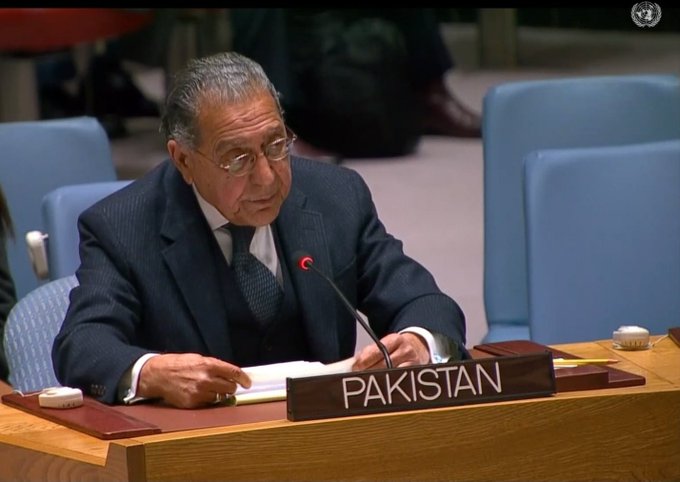UNITED NATIONS: Pakistan has underscored the need for strengthening the United Nations Observer Mission in India and Pakistan (UNMOGIP) so that it plays a “more effective” role in preserving peace and security along the Line of Control (Loc) in the disputed Kashmir region.
“We believe UNMOGIP has been and continues to play an important role in the maintenance of peace and security along the Line of Control in Jammu and Kashmir, in accordance with the relevant Security Council resolutions,” Ambassador Munir Akram said at the first meeting of the 2023 session of the Special Committee on Peacekeeping Operations.
UNMOGIP was deployed in January 1949 to supervise the ceasefire between India and Pakistan in Jammu and Kashmir.
While Pakistan allows UN observers to monitor the LoC, India does not.
The Rawalpindi-based group, which Pakistan hosts, is composed of 44 military observers, supported by 25 international civilian personnel and 47 local civilian staff.
In his remarks at the Committee, the Pakistani envoy said that peacekeeping was most effective as part of the overall ‘political strategy’ to resolve conflicts and build peace, adding that this strategy should embrace the entire peace continuum — from conflict prevention to conflict resolution.
“The goal of protection of civilians is best served by preventing the outbreak of armed conflict, addressing the root causes of conflict, and finding just and sustainable political solution through dialogue and mediation,” he added.
Ambassador Akram also underscored the need to strengthen missions and operations through strategic communications, gender mainstreaming and better protections for those who serve in them.
He stressed that peacekeeping must remain distinct from peace enforcement and counter-terrorism operations.
While the nature of conflict has changed due to the emergence of asymmetric threats, responding to these threats must not allow peacekeeping to drift into grey zones by assuming the role of militarized enforcement operations without conscious planning and decisions in that regard, the Pakistani envoy said.
The principles of integrity and impartiality must be preserved, he said before urging peacekeeping operations to develop the capacities of host countries to address the security threats posed by terrorists and armed groups.Peacekeeping must also be driven by the spirit of burden-sharing with bilateral and multilateral partnerships encouraged through co-deployments and training initiatives.
On the increase in women peacekeepers, he called for equitable geographic representation, especially for leadership roles and pointed out that this will incentivize the participation of women peacekeepers from developing countries.
Ambassador Akram then underscored the need for realistic, achievable and adequately resourced mandates; quality taking precedence over political expediency when selecting troop-contributing countries; promotion of peacekeeping-specific technology to address operational needs; and strategies to embrace the entire peace continuum. –Agencies




